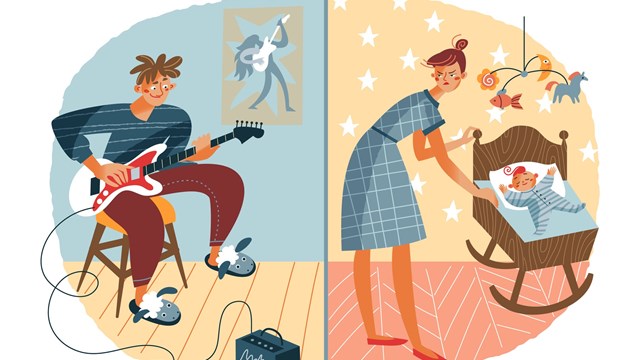As outlined in our bylaws, each unit must cover 80 percent of the apartment with sufficient noise insulation materials. They complied and installed 80 percent of those playground type plastic tiles. However, the noise has not subsided and the complaints continue. The noise is no longer from children running around, but still from screaming and wall banging.
What other course of action can I take? There are no laws in our book to address this situation and there doesn’t seem to be any prohibition against noise. By the way, one unit started blasting their stereo as a means to drown out the children; now that noise has become the source of a new complaint. The owners are all within their rights, but this has turned into quite a quality of life issue.
—New Board President in Brooklyn
“Such problems illustrate the classic conundrum experienced by new condominiums, where unit owners are typically not familiar with board regulation and generally tend to feel that a ‘man’s home is his castle.’ As with any communal living situation, rules must be established, and boards must, from the very beginning, be firm in their enforcement,” says Bruce Cholst, an attorney with Rosen & Livingston in Manhattan.
“Quality of life issues such as excessive noise emanating from apartments are typically addressed in a document called ‘House Rules,’ which usually appears in the offering plan right after the recitation of the condominium’s bylaws. Almost every set of house rules contains a provision which states: ‘no unit owner shall make or permit any disturbing noises, odors, or activity in the building which will interfere with the rights of other unit owners or their tenants or guests.’ In the unlikely event your association’s house rules do not contain this kind of provision, they should be amended to include this language at your next board meeting. Either way, such a provision provides the basis for any enforcement action by the board against the offending unit owner.’
“Condo boards,” continues Cholst, “typically have two types of enforcement actions available in a situation like this. First, they can seek a court order (injunction) either prohibiting the children from being dropped off at their grandparents’ apartment or requiring the grandparents to install soundproofing or take some other effective ameliorative action to control the situation. However, legal action of that nature is extremely expensive, and the courts are typically loathe to grant such drastic relief.
“Alternatively, as is the case in the overwhelming majority of condominiums, your condominium’s bylaws may authorize the imposition of monetary fines against unit owners for their violation of house rules. You can threaten to levy such penalties against the offending unit owner in the event of their failure to take efficacious and ameliorative action to control their grandchildren or insulate the sound that the grandchildren create. The threat of monetary fines often works to deter continued house rule violation.
“There may be another alternative means of dealing with a situation like this, namely informal mediation. Informal mediation would entail the board’s meeting face to face with both the offending unit owner and the complaining residents. The purpose would be to hash out precisely what sorts of activities are resulting in the excessive noise condition; where and when it is occurring; and what the grandparents are willing and able to do to ameliorate the situation. The board would serve as facilitators of a solution, which would then be reduced to writing, in a manner that would be legally binding against the grandparents.
“The fact that the grandparents were willing to install noise reducing floor tiles in the first place suggests that they may be sensitive to the situation and amenable to discussing a mutually acceptable solution. They may actually be unaware that there is a continuing noise problem. Thus, under any circumstances, I would suggest directly contacting the grandparents and making the attempt to reason with them before resorting to any of the other remedies listed above.”







Leave a Comment